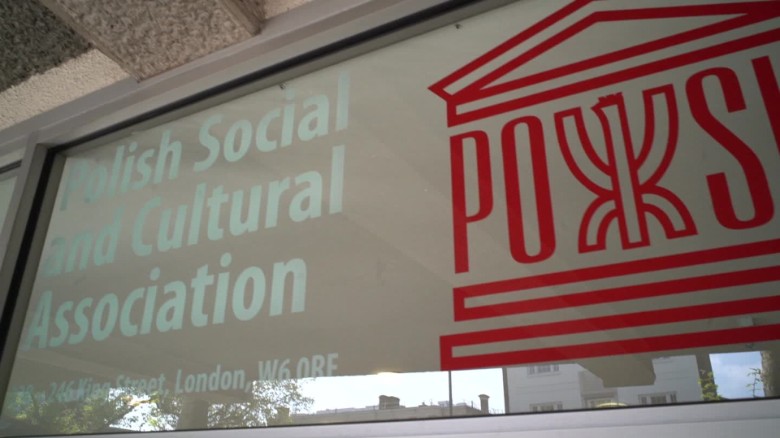Brain drain claimed 1.7 million youths. So this country is scrapping its income tax

A new law that comes into effect in Poland this week will scrap income tax for roughly 2 million young workers.It’s an attempt by the government to stop the dramatic brain drain Poland has experienced since it joined the European Union 15 years ago. Prime Minister Mateusz Morawiecki said the tax exemption will bring new opportunities for young people “so they match those available in the West.”Poles under the age of 26 who earn less than 85,528 Polish zloty ($22,547) a year will be exempt from the country’s 18% income tax starting August 1. The allowance is generous, considering the average Polish salary stands at just below 60,000 zloty ($15,700) a year.The government said 2 million people will qualify for the benefit.When Poland and seven other central and Eastern European countries joined the European Union in 2004, its citizens gained the right to work across the bloc without the need for a work permit or visa. When advocating for the new law in the parliament, Morawiecki said 1.7 million people left Poland in the past 15 years. “It’s as if the entire city of Warsaw left … it’s a gigantic loss,” he said.”This must end, young people must stay in Poland,” Morawiecki added. ]]]]>]]>The exodus has had a negative impact on the economy. “In the past three (or) four years we started seeing worker shortages and (realized) that we need those people back,” said Barbara Jancewicz, who heads the Economics of Migration Research Unit at the Center of Migration Research in Warsaw.Kinga Kitowska is one of those who left. The 22-year old corporate analyst came to London to study and stayed after getting a job in finance.While she thinks the government’s offer is generous, it won’t be enough to convince her to return. “To make young people stay in the country, I don’t think that’s the way to go,” she said. “It’s about building opportunities and opening sectors which are attractive for young people at the moment.”Immigration experts are also unconvinced the strategy will work. “It’s not all about money,” said Heather Rolfe, the head of employment and social policy team at the National Institute of Economic and Social Research, a think tank in London. ]]]]>]]>”The research that has been done on young Polish migrants in the UK has highlighted that often young people leave as a kind of rites of passage, they will go to get away from their family, to gain some independence,” she explained. Kitowska agrees. Salary, while important, is not a priority. “I’m looking for opportunities rather than money in the short term,” she said. The job she’s got in London doesn’t really exist in Poland. Most finance jobs available there are in back offices, the behind-the-scenes parts of the businesses that don’t deal with clients. “You don’t have that many opportunities in the front desk kind of space,” she said.The UK has been the most popular destination for Polish migrants since 2004: almost 1 million now reside in the British Isles. Despite the major economic advances Poland has made in recent years, salaries are still significantly higher in the UK. “The 18% tax break, it’s a lot, but it still doesn’t close the (earnings) gap between Poland and the UK,” said Jancewicz.The tax exemption is just one of many welfare handouts announced by the ruling Law and Justice (PiS) party ahead of the European elections in May. A general election must also take place by November.The government expects the welfare package, which also includes new benefits for families with children and bonus pension payments, to cost 40 billion zloty ($10 billion).Morawiecki insists the reforms are investment into society and economy. And while the law gained an overwhelming support in the PiS-dominated Polish parliament, it has sparked some criticism too. Ryszard Petru, member of the parliament for the opposition Now! party, called the measure “extremely deceitful populism.”Speaking in the parliament, Petru said that instead of making young people better off, the costly new law will likely lead to employers slashing wages, keeping the after-tax pay packages the same. “And what will happen when they turn 26? They will be made redundant because suddenly, they’ll be more expensive,” he added. ]]]]>]]>Rolfe said that the age limit will likely disqualify those who are already abroad and are thinking about returning to Poland. “The time when people start to think about whether they do want to stay or go back to their own country is slightly later, when they’ve decided that they’re going to have kids, sort of late 20s, early 30s,” she said.However, the law could help convince those who are thinking about leaving to stay. “It’s much more important for those who are still in Poland and had not migrated yet, because it encourages a more stable employment, and it gives them some benefit … so they might be more prone to stay in Poland,” Jancewicz said.Even if the policy doesn’t work as intended, Polish people might reconsider their British futures. The slump in the value of the pound following the Brexit referendum in 2016 has made working in the UK much less attractive. The atmosphere has soured too. The debate around Brexit was centered around immigration and police statistics showed that reported hate crimes against immigrants spiked after the referendum.Confusion around Brexit and the country’s future migration policy is already pushing people away. Statistics show there are now more Polish people leaving the UK than arriving. The UK government’s Brexit policies and the perceived British hostility towards migrants might prove more effective in making Polish migrants return home than any tax breaks. CNN’s Tara John contributed to this report.






